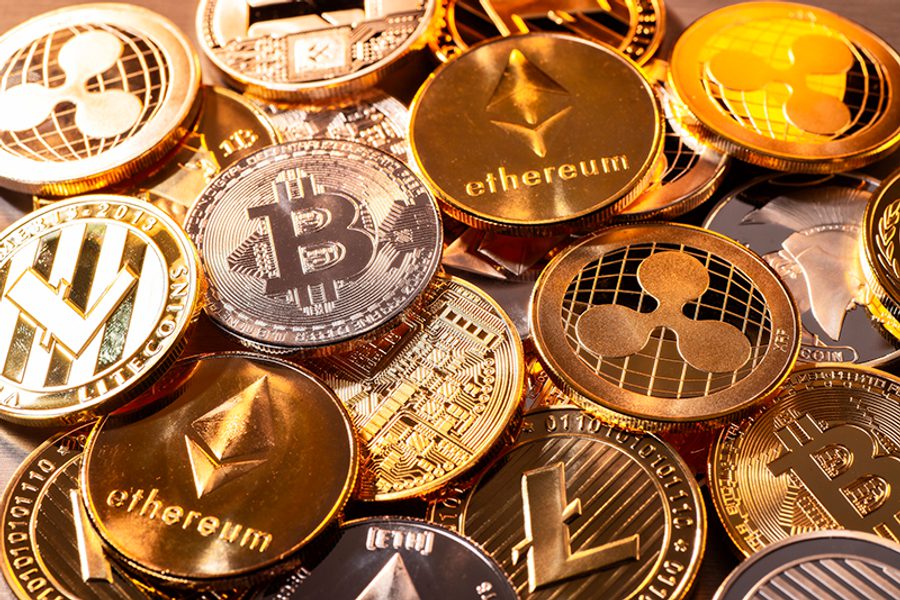Note: This information is from 2021 but much has changed since then. Please be sure to discuss your unique financial situation with your McKinley Carter Advisor or another trusted professional.

For many, the last 365 days as an investor have produced many emotions: fear, greed, panic, anxiety, euphoria, information overload — but none more powerful that the fear of missing out or FOMO. Because of FOMO, our likelihood of making decisions that are outside of our expertise, and/or not in line with our overall investment strategy, skyrockets. Read why it's so important not to become blinded by the shiny objects.
These are strange times in which we live.
The last 12 months have produced a market environment unlike any we have ever seen. The compression of market cycles has caused meaningful movements to happen quickly, and in all corners of the market.
For many, the last 365 days as an investor have produced many emotions: fear, greed, panic, anxiety, euphoria, information overload — but none more powerful that the fear of missing out, otherwise known to the kids as ‘FOMO.’ And boy-oh-boy is that one powerful! FOMO is the close cousin of “regret aversion,” a clinical behavioral bias that can wreak havoc on a financial plan if left unchecked.
The reality is, since roughly May 1, 2020, it has been very difficult for nearly anyone, investing in nearly anything, to lose money. A few examples to consider:
- Bitcoin? You bet — up 447 percent since May 1, 2020.
- Pokémon cards? Essentially gold-plated paper at this point, with 2020 bringing about a sale of one card for over $200,000.
- NFT’s (non-fungible tokens)? Of course. NBA’s product “Top Shot” lets investors buy the “digital rights” to specific video clips of prominent moments in NBA history. This clip of a thunderous LeBron James dunk fetched over $200,000 as well in a recent auction. Moreover, resale value is expected to be 2x or 3x in a few months.
There are seemingly endless ways that “other people” are making gobs of money during arguably one of the most tumultuous economic periods in our lifetimes. With that feeling of missing out, our likelihood of making decisions that are outside of our expertise, and/or not in line with our overall investment strategy, skyrockets. We become blinded by the shiny objects.
With our attention span diminishing each day and inching ever so closer to that of a squirrel, it has become increasingly tempting to stray from the course we have laid out for ourselves — the course built upon time-tested and risk-mitigating investment strategies that build wealth over a lifetime of good habits and positive annual returns. Some choose to cast aside their stated strategies to chase the “home run” potential of one investment. They hope for miracle returns on things they don’t quite understand yet expect to come through (think dollar-drunk, internet-watching people who tell tales of quick riches).
In times like these, the best thing we can do is breathe…
A plan is important, not because it can’t be changed (it most certainly can), but because a plan sets some baseline expectations for how events may play out along with guidelines for future actions we may take. A plan is a measuring stick and an accountability partner, all-in-one.
I heard a TV personality aptly summarize the 2020 buying-frenzy climate as “that idea sounds stupid, but I’m going to buy some just to be safe.” As you try to scrape the back of your brain to remember why on earth you own a bunch of indexed, diversified ETFs instead of GameStop, SPACs, and Beanie Babies, please also remember that when the proverbial dung hits the fan, you’ll be just fine (unlike the folks holding the latter three who may very well be financially ruined and starting over — from scratch).
Long story short, you’ve worked too hard to risk it all during this market period, when even the best-of-the-best hedge fund managers have ZERO idea what is going on. New things will always come around. Some of them will be great investments that will positively impact our lives forever. Unfortunately, many others will be devastatingly worthless, leaving a trail of broken dreams and empty wallets in their wake.
A plan is accountability.
A plan is guardrails.
A plan is sanity.
And a plan will keep your eyes on the finish line, undeterred by whatever shiny object tries to get your attention (and ultimately your money).
Have a plan.
